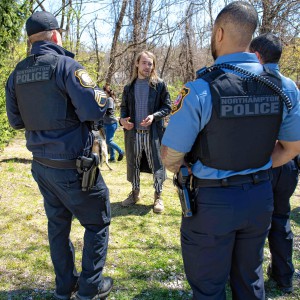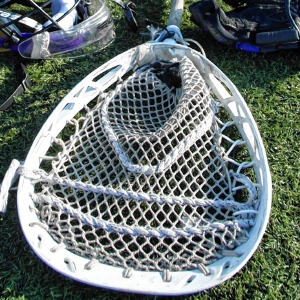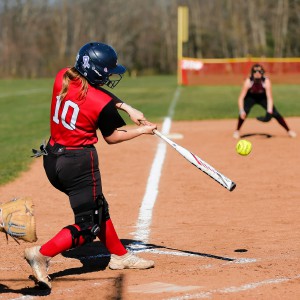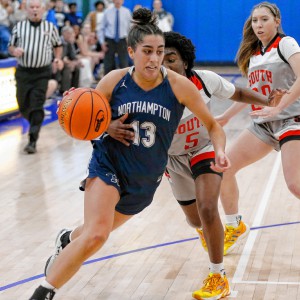The Real Score: Beware the March “Madness” of sports betting

| Published: 03-14-2024 1:01 PM |
This Sunday, the March Madness brackets will be set, enabling millions of sport consumers to place bets that will total in the billions of dollars (you should also expect to see some ads from the sports books…).
This week, in recognition of March Madness, the Drake Group (an intercollegiate athletics think-tank) hosted a webinar featuring a former NBA referee and an attorney who were gambling addicts, a professional gambler and founder of a betting tips newsletter, and experts on the treatment of gambling addiction. Their topic? “How gambling has the potential to destroy college sports and sports across the globe.” Their “sell copy” went on: “Despite the promises of bookmakers and gambling ‘experts’ that gambling is fun and safe, the rise in corruption and addiction, particularly among young men, is massive… Panelists examine whether there are ways to minimize the pending catastrophe.”
Pending catastrophe? That’s their words, not mine.
In 2004 I authored a peer-reviewed article entitled “The Growth in Marketing Alliances between U.S. Professional Sport and Legalized Gambling Entities: Are we putting sport consumers at risk?” The abstract read, in part, “Because of increased societal and governmental endorsement, legalized gambling has become a widely accepted form of entertainment. Concurrently, U.S. professional sport organizations have begun loosening the internal policies and restrictions that have historically established a firewall between professional sport organizations and legalized gambling entities (LGEs), resulting in a recent proliferation of marketing alliances between the two…[and] raising the specter that sport organizations’ marketing alliances with LGEs may have profound effects on sport consumers.”
My “take” on this was colored by six years I worked in the Baseball Commissioners Office, defending the firewall. This included emphatically saying “NO” to teams who called seeking permission to run print ads for local casinos in their game-day magazine. During my tenure at MLB, Pete Rose was banned from baseball for life by then-commissioner Bart Giamatti, and in 1991 his successor as commissioner, Fay Vincent, testified before Congress about the evils of sports betting, “Protecting the integrity of the game is our primary job,” he stated. His testimony, and that of Commissioners Stern (NBA) and Tagliabue (NFL) helped result in the passage of the Professional and Amateur Sports Protection Act of 1992 (PAPSA) that banned the legalization of sport betting beyond Nevada.
Over the next two-and-a-half decades, brick after brick fell from the fortress that had long protected U.S. pro and college sports from legalized betting; the final brick fell on May 14, 2018 with the U.S. Supreme Court’s holding in Murphy v. NCAA that invalidated PAPSA and opened the floodgates to legalized sports betting.
Again, I ask the question: are we putting sport consumers at risk?
It’s ironic that, for all the extra fun and excitement – oh, and substantial new revenue streams – promised as a benefit to legalized sports gambling, most of what we hear about sports gambling revolves around the programs and protocols to mitigate its potential harms. The airwaves are overwhelmed with ads providing numbers to call if you have a gambling problem. State legislation mandates that sportsbooks install all sorts of safety measures and stopgaps for problem gamblers. The vast majority of newspaper articles and editorials bemoan the socio-economic ills of sports gambling (witness this headline on the Springfield Republican’s editorial page just this week: “Gamblification casts pall over sports.”).
Article continues after...
Yesterday's Most Read Articles
 Police report details grisly crime scene in Greenfield
Police report details grisly crime scene in Greenfield
 Super defers Amherst middle school principal pick to successor; one finalist says decision is retaliation for lawsuit
Super defers Amherst middle school principal pick to successor; one finalist says decision is retaliation for lawsuit
 Homeless camp in Northampton ordered to disperse
Homeless camp in Northampton ordered to disperse
 Authorities ID victim in Greenfield slaying
Authorities ID victim in Greenfield slaying
 Haydenville residents resist Greenway trail plan, float alternative design
Haydenville residents resist Greenway trail plan, float alternative design
 Locking up carbon for good: Easthampton inventor’s CO2 removal system turns biomass into biochar
Locking up carbon for good: Easthampton inventor’s CO2 removal system turns biomass into biochar
A national survey on sports betting among young adults between the ages of 18 and 22 commissioned by NCAA President Charlie Baker indicates that an increasing number of young adults across the country are wagering on sports. The ease of access created by mobile and online betting is just one factor fueling this. Among the key findings of the widely publicized survey:
67% of college students living on campus have engaged in sports betting
41% of college students who bet on sports have placed a bet on their own school’s teams, and 35% have used a student bookmaker
Young adults report that advertisements have influenced their betting activity, with 63% reporting having seen such TV betting ads
58% of those students indicate they are more likely to bet after seeing the ads
This survey focused on the general student body, but similar data is emerging on the behaviors of student-athletes that are equally disturbing (and which I’ll save for a future column). While the vast majority of college students who are of legal age to gamble do so responsibly, the most recent research estimates that 6% of college students in the U.S. have a serious gambling problem, symptoms of which include increasing preoccupation with gambling, a need to bet more money more frequently, restlessness or irritability when attempting to stop, “chasing” losses, frequent unexplained absences from classes or work, a sudden drop in grades, a decline in health, just to name a few. In extreme cases, problem gambling can result in financial ruin, legal problems, loss of career and family, or even suicide.
In this college town of some 30,000 students between 18-22 years old, the research findings suggest a boatload of students (mostly males) will wager (and lose) a boatload of money in Amherst during March Madness … but also that a not insignificant number of students will also continue down a dark path.
Beware all that added fun and excitement …
Steve McKelvey, J.D. is a Full Professor in the Mark H. McCormack Department of Sport Management at the University of Massachusetts. He is a former Department Chair and Graduate Program Director, and can be reached at mckelvey@isenberg.umass.edu

 High schools: Furious fourth quarter rally falls just short for South Hadley boys lacrosse
High schools: Furious fourth quarter rally falls just short for South Hadley boys lacrosse  Softball: Hampshire rallies from early deficit, slugs past Easthampton 10-4 (PHOTOS)
Softball: Hampshire rallies from early deficit, slugs past Easthampton 10-4 (PHOTOS) 2024 Gazette Girls Basketball Player of the Year: Ava Azzaro, Northampton
2024 Gazette Girls Basketball Player of the Year: Ava Azzaro, Northampton High schools: Ava Shea, Belchertown girls tennis get past South Hadley (PHOTOS)
High schools: Ava Shea, Belchertown girls tennis get past South Hadley (PHOTOS)
